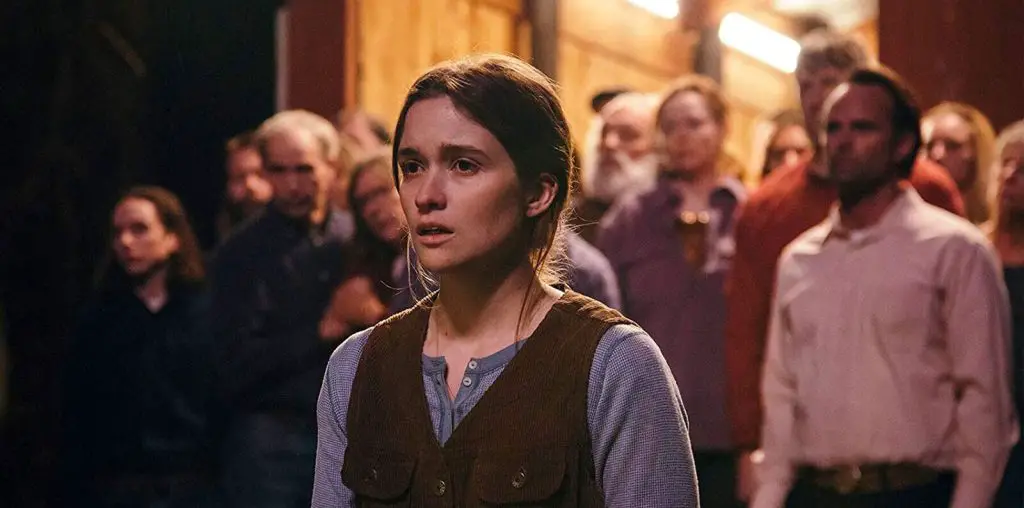
Reminiscent of how Woody Allen has used various cities as romantic characters in his films, the decidedly lower-key melancholic memories of Oslo which Norwegian director Joachim Trier (distantly related to the more famous Danish filmaker Lars von Trier) flashes through in the opening images of his new film are but a prelude to an even more introspective film. Trier, whose 2006 debut feature “Reprise” won more than a handful of prestigious festival awards, as well as the Amanda (Norway’s Oscar equivalent—”Oslo, August 31st” has six nominations that should bear some winners when announced August 23rd), only saw limited Stateside release via Miramax in mid-2008.
Back to those memories, though. As various characters (real people, not actors) voiceover their childhood impressions of the city—first snows, the 1952 Olympics, buildings now demolished, friends long gone—the emotional stage is set in Trier’s second feature, in which a recovering 34-year-old drug addict drifts about the physical city with his personal emotions and past mistakes swirling about like storm clouds, ready to erupt at any moment.
Anders, his hair cropped short, his white shirt too tight around a fit torso, and his breathing just a tad too tired yet quick, is anxious. And depressed. And suicidal. Photos of a current/former girlfriend hug the walls of his room, but her absence in his life leaves him a swirling mess. At the easygoing rehab center somewhere outside the city, group therapy brings out the usual truths and lies, enough to convince the leader that the young man can be trusted to head into Oslo for a job interview. And then his day (and the first music on the soundtrack, which is fairly devoid of “score” until the last third, and then only sparingly as an extension of the film’s incidental rave-style music) begins. BTW, kudos to Gisle Tveito’s sound design and mix.
The unsteady Anders is played with a nice anti-heroic determination by Anders Danielsen Lie (who starred in Trier’s earlier film), effectively understating his role within the minimalist approach by Trier (who co-wrote the screenplay with Eskil Vogt, based on a 1931 French novel previously filmed by Louis Malle as 1963’s “The Fire Within”). Although he never trained to be in the profession—he’s the son of Norwegian actress Tone Danielsen—Anders instead pursued a medical degree, and actually works as a general practitioner. What an interesting wage-earning combination.
The general unease of Anders’ various meetings simmers up with a lunch at a friend’s apartment. Thomas (Hans Olav Brenner), an academic who apparently partied long and hard with Anders, quickly offers a beer (Anders opts for coffee), and too casually talks to his too-young-to-comprehend daughter about heroin and other drugs that Anders used to troll. Anders’ escalating fall into depression carries the long-legged conversation with Thomas to a level that from which any recovering drug addict might find extrication difficult or impossible.
Low self-esteem dogs Anders and sends the viewer stumbling along with him. Happiness doesn’t translate in his life’s vocabulary (“I’ve always thought happy people must be morons.”). The relentless shackles of Thomas’s newly minted mediocrity is meant to lighten up Anders’ emotional burdens, but the lad’s life is as shaky as the hand-held camera portrays it. The cinematography by Jakob Ihre works very effectively to the film’s haunting approach, particular one scene where Anders is sipping coffee in an outdoor cafe, his ears picking up morsels of chatter from nearby tables. He’s in the foreground, out of focus, as several mothers chat about kindergarten at a back table. The sequence then takes an existential approach to his life, the camera following several passers-by on their brief excursions outside of the physical arena in which he sits.
So is the film a picker-upper? As much as life is, generally speaking. The interview Anders has for an editorial assistant position shows he can be brutally honest, yet fleetingly hopeful about the drug problem (“I haven’t even had a beer in almost ten months.”) behind his dour expression. At least before another fit of self-destructive behavior arrives behind the next door. Talky (in conversation or when Anders is self-contemplating) and painful, the poetry in “Oslo, August 31st” references the director’s admiration of Eric Rohmer, Terrence Malick, and Andrey Tarkovsky. Life’s sadder moments are quite well displayed in Trier’s nuanced approach. For many popcorn munchers, that regrettably doesn’t translate as a must-see movie in today’s crowded marketplace. For others who want a taste of desperation served raw at the end of summer, “Oslo” may provide some refreshingly painful relief.
